Founder of Anonymous blows the lid on the international cyber group’s secrets for the first time
The founder of the international hacktivist gang Anonymous has revealed the top-secret group for the first time in a recently released documentary.
Gregg Housh described how the organization grew from an online chat room for trolls to a vigilante group exposing neo-Nazis and taking on the Church of Scientology.
What started as a small online troll group of just 10 people in the US has grown into an international organization with thousands of members, some of whom now hold positions of “power” from state representatives to government advisors.
Anonymous is known for their masks and secrecy in carrying out high-profile attacks that are often motivated by social or political issues. The organization began in an online chat room in 2006
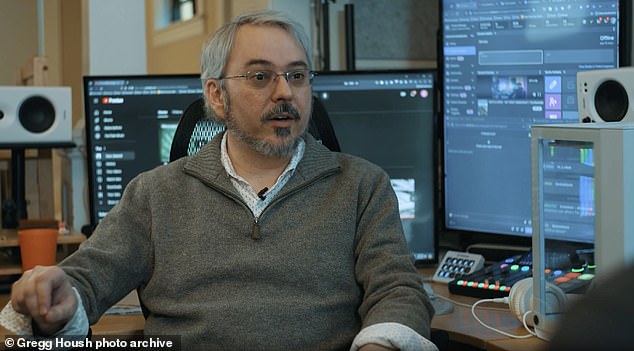
Gregg Housh, the founder of the international hacker gang Anonymous, has revealed the top-secret group for the first time in a recently released documentary
Anonymous is known for their masks and secrecy when carrying out high-profile attacks, often motivated by social or political issues.
“Given how secretive the movement has historically been, our documentary team was shocked by how open Gregg was,” said Joshua Tanner Murphy, the documentaries the producer told DailyMail.com.
Housh started the group in 2006 in an online chat room in his basement. The group was intended to serve only as an online technical forum where everyone would remain anonymous.
For about a year it was just users trolling each other, years before trolling became mainstream, until they took on someone they felt needed to be threatened: Hal Turner.
Turner was a neo-Nazi radio host who once held up a noose during a CNN interview and said, “This is a symbol of justice and we’re going to see a lot more of this in the United States.”
They targeted Turner because he was the type of person who could entice you to respond, but an Anonymous member hacked into his emails and discovered that Turner was an FBI informant and that he was turning in other neo-Nazis to stay out of jail.
At that point, more people started to join the cause. “They didn’t feel bad about joining,” because this was a bad person they were going after, Housh said.
In June 2009, Turner was sentenced to 33 months in prison for threatening three federal judges with violence and murder over a decision in a firearms case.
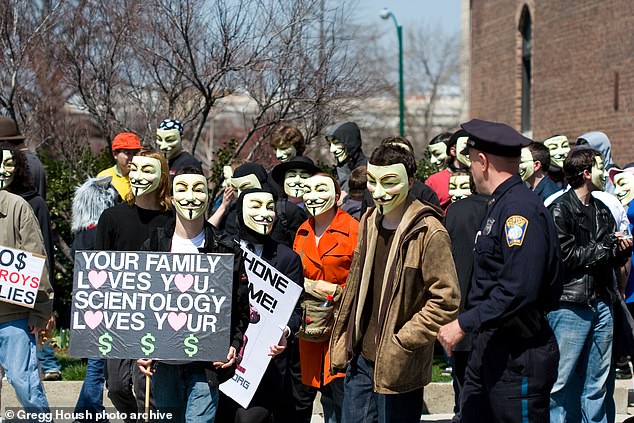
The organization’s first major foray into hacktivism came in its fight against the Scientology religion, after a video of Tom Cruise promoting the group was posted online in 2008
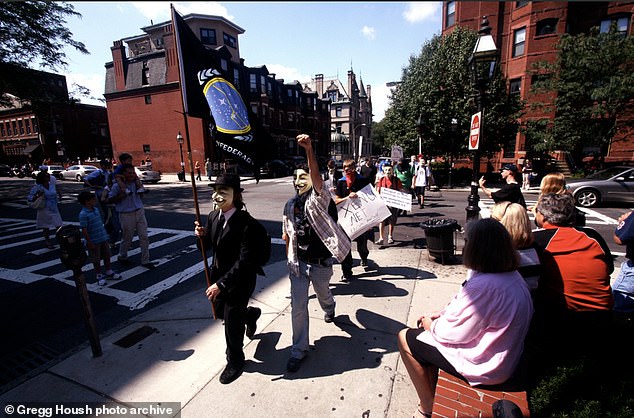
Protests erupted worldwide as thousands of Anons (members of Anonymous) planned to march outside Scientology buildings at 9 a.m. local time
In the early years, Anonymous set out to find out ‘what kind of power we have, the same thing a teenager experiences in life.’
This brought the cyber group into contact with hacktivism, a group that used hacking techniques to support a cause or make a statement.
The organization’s first major step into hacktivism came in its fight against the Scientology religion, after a video by Tom Cruise promoting the group was posted online in 2008.
The video was quickly removed, but Anonymous found the video and reposted it online.
Someone with the username Dojo responded on the Anonymous site. He said that reposting the video was costing the Scientology organization a lot of money and that the media wanted to report on it.
“So we were asked to write a press release,” Housh said.
Anonymous made a video message to Scientology which went live on January 21, 2009 at 10:20 PM
Before Housh knew it, the video was in the news and Anonymous grew from a few hundred to 10,000 users in 42 countries and across 143 cities.
Suddenly, Housh remembers thinking, “We’ve got an army. What do we do with it?”
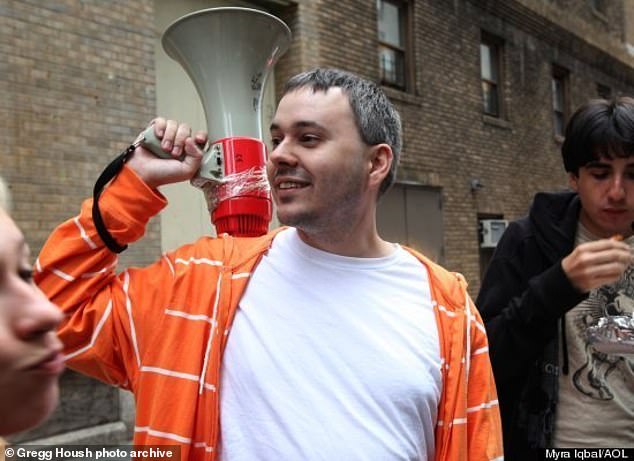
Pictured: Gregg Housh leads Anonymous against Scientology in 2009
One day, Housh was watching the news and saw Tory Magoo, a former Scientologist turned critic, dancing and singing in front of the Scientology building in Boston and making anti-Scientology comments.
He reposted the video on the website Anonymous, writing, “This is what it would look like if everyone went outside.”
His comment sparked a global protest, with thousands of Anons planning to line up outside Scientology buildings around the world at 9 a.m. local time.
Housh called costume shops to find the cheapest mask that people around the world could buy to protect their anonymity. He found that they all had one thing in common: Guy Fawkes from the movie ‘Fifth of November.’
Thousands of people came out in their masks to protest outside Scientology buildings, preventing the organization from recruiting members. Eventually, Scientology buildings were forced to close.
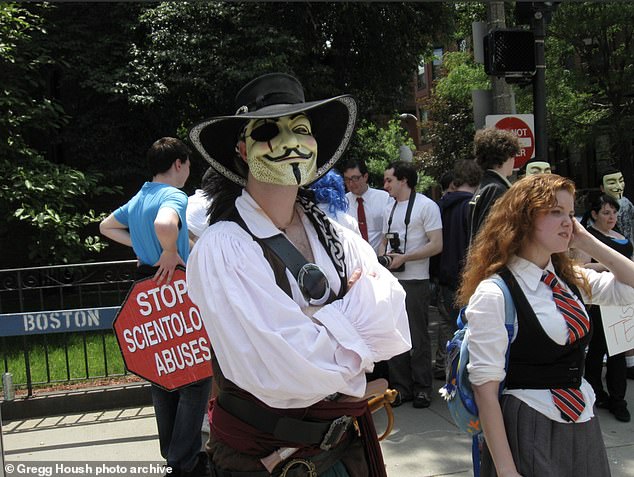
Housh called costume shops to find the cheapest mask people around the world could buy to protect their anonymity and found they all had one thing in common: Guy Fawkes from the movie ‘Fifth of November’
A year later, an Australian logged into the Anon chat to ask the organization for help in fighting the local senate, which wanted to pass a censorship law to make pornography illegal. The reason for this was that women with small breasts would turn men into pedophiles.
Within hours, Housh received a call from an anonymous senator asking what they should do to prevent Anonymous from releasing their emails.
He claimed he did not threaten the senator when he told him they would not leak the emails until the bill passed.
The next day, the vote fell through and Housh received a phone call from the senator, thanking him for not releasing the emails.
But it wasn’t until Aaron Barr, working for HB Gary Federal, claimed he had a list of Anonymous usernames and phone numbers linked to the organization’s leaders that the organization really began to grow.
HB Gary is an IT security company that helped protect the US government, but when Anon hackers gained access to the system, they realized that the names were not of Anon members, but it involved data from innocent people who had never been part of the group.
HB Gary’s emails revealed that the company was creating VPNs for the US Air Force so they could create fake social media profiles in other countries to “influence people’s opinions of America.”
“That’s really the beginning of full-blown hacktivism,” Housh said.
‘They sit in state houses as representatives and advisers to Congress, and some even run for Congress.
‘They are in positions of power in companies. They are journalists everywhere.
“… So the answer to ‘who is anonymous these days’ is that it’s everyone who says they are anonymous. We are literally everywhere.”
